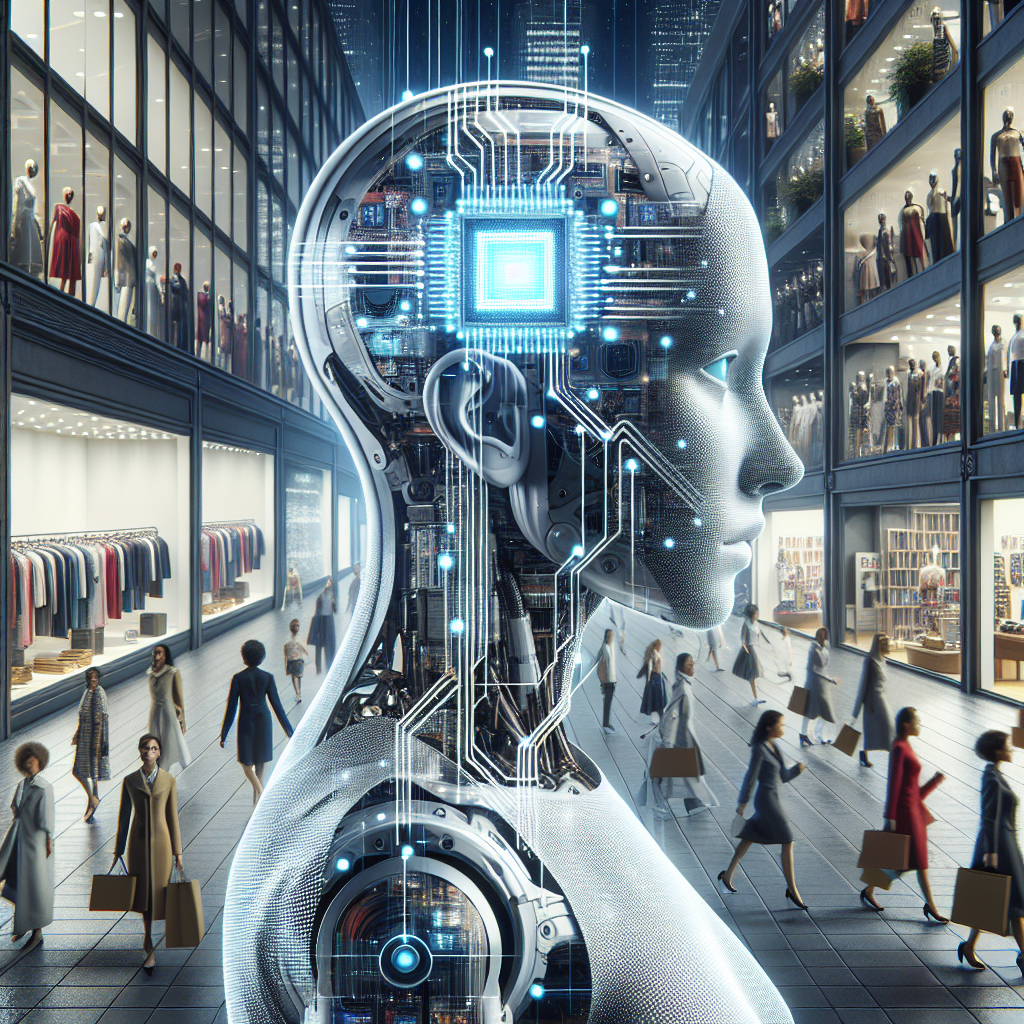The Role of AI in Fashion Retail Market Analysis
Artificial Intelligence (AI) has revolutionized many industries, and the fashion retail market is no exception. AI technologies are being used by retailers to streamline operations, enhance customer experiences, and gain valuable insights into market trends. In this article, we will explore the role of AI in the fashion retail market analysis and discuss how it is shaping the future of the industry.
AI in Fashion Retail Market Analysis
AI technologies are transforming the way fashion retailers analyze market trends, consumer behavior, and sales data. By leveraging AI tools, retailers can gather and process vast amounts of data in real-time, allowing them to make data-driven decisions and stay ahead of the competition.
Some of the key ways AI is being used in fashion retail market analysis include:
1. Predictive Analytics: AI technologies can analyze historical sales data, consumer behavior, and market trends to predict future sales and demand. By using predictive analytics, retailers can optimize inventory levels, pricing strategies, and marketing campaigns to maximize sales and profitability.
2. Personalized Recommendations: AI-powered recommendation engines can analyze customer preferences, purchase history, and browsing behavior to provide personalized product recommendations. By offering personalized recommendations, retailers can increase customer engagement, drive sales, and enhance the overall shopping experience.
3. Image Recognition: AI technologies can analyze images and videos to identify trends, styles, and patterns in the fashion industry. By using image recognition tools, retailers can monitor social media platforms, fashion blogs, and online marketplaces to stay informed about the latest trends and emerging styles.
4. Supply Chain Optimization: AI technologies can optimize the supply chain by predicting demand, identifying supply chain bottlenecks, and automating inventory management. By using AI-powered supply chain optimization tools, retailers can reduce costs, improve efficiency, and ensure products are delivered to customers on time.
5. Fraud Detection: AI technologies can detect fraudulent activities, such as payment fraud, account takeover, and fake reviews. By using AI-powered fraud detection tools, retailers can protect their business from fraudulent activities and maintain the trust of their customers.
Benefits of AI in Fashion Retail Market Analysis
The use of AI in fashion retail market analysis offers several benefits to retailers, including:
1. Improved Decision-Making: AI technologies provide retailers with valuable insights into market trends, consumer behavior, and sales data, enabling them to make informed decisions and optimize their operations.
2. Enhanced Customer Experience: By offering personalized recommendations, AI technologies can enhance the shopping experience for customers, increasing engagement and driving sales.
3. Increased Sales and Profitability: AI-powered predictive analytics can help retailers optimize pricing strategies, inventory levels, and marketing campaigns to maximize sales and profitability.
4. Cost Savings: AI technologies can automate repetitive tasks, such as inventory management and fraud detection, reducing costs and improving efficiency.
5. Competitive Advantage: By leveraging AI technologies, retailers can stay ahead of the competition, identify new opportunities, and adapt to changing market trends.
Frequently Asked Questions (FAQs)
Q: How can AI technologies help fashion retailers improve their inventory management?
A: AI technologies can analyze historical sales data, consumer behavior, and market trends to predict demand and optimize inventory levels. By using AI-powered inventory management tools, retailers can reduce stockouts, minimize overstock, and improve the overall efficiency of their supply chain.
Q: What are the key challenges of implementing AI technologies in the fashion retail market?
A: Some of the key challenges of implementing AI technologies in the fashion retail market include data privacy concerns, integration with existing systems, and the need for skilled AI professionals. Retailers must address these challenges to successfully leverage AI technologies and realize their full potential.
Q: How can AI technologies help fashion retailers enhance their customer experience?
A: AI-powered recommendation engines can analyze customer preferences, purchase history, and browsing behavior to provide personalized product recommendations. By offering personalized recommendations, retailers can enhance the shopping experience for customers, increasing engagement and driving sales.
Q: What are some examples of AI technologies being used in the fashion retail market?
A: Some examples of AI technologies being used in the fashion retail market include AI-powered recommendation engines, image recognition tools, predictive analytics platforms, and fraud detection systems. These technologies are helping retailers streamline operations, enhance customer experiences, and gain valuable insights into market trends.
In conclusion, AI technologies are playing a crucial role in shaping the future of the fashion retail market. By leveraging AI tools, retailers can analyze market trends, consumer behavior, and sales data to make data-driven decisions and stay ahead of the competition. The use of AI in fashion retail market analysis offers several benefits to retailers, including improved decision-making, enhanced customer experiences, increased sales and profitability, cost savings, and a competitive advantage. Retailers must address key challenges and take advantage of emerging AI technologies to succeed in today’s competitive market.

